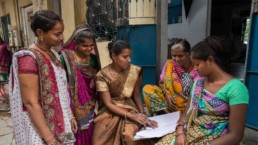Denial of abortion: Violating a woman’s right over her own body
Once liberal and way ahead of its time, the Medical Termination of Pregnancy Act, 1971 has not been able to keep up with the evolving cultural, judicial, and social landscape of the country. 48 years down the line, due to the lack of acknowledgement of the changing needs with the changing times, the antiquated act is caught in a time warp.
The problems in the MTP Act are rooted in its approach and its way of inception. It is unfortunate that the Act came into being to address the population issue rather than women’s rights issue which leads to the fact that abortion wasn’t formally recognised as a right of the woman and that we are still struggling with a situation where the choice of a woman over her body is up for debate. For instance, the act prioritises the decision and judgement of the RMP (Registered Medical Practitioners), based on outdated standards of medical risk when the act should prioritise the decision of the woman and view MTP as a matter of right and not only medical feasibility.
- The time threshold of 20 weeks was decided at a time when the only methods of abortion available were Dilatation and Curettage, which were riskier procedures as compared to the technology available today such as Manual Vaccum Aspiration and Medical Abortion drugs. Thus, an MTP carried out at any time during the pregnancy today does not pose the same risk as it did in 1971. The Act must therefore account for these technological changes in its framework.
(Assessing the Judiciary’s Role in Access to Safe Abortion) - Taking the point of technological advancements forward, it is important to note that while the Act views grave injury to mental health on the same level as grave injury to physical health up to 20 weeks, the importance placed on mental health is relegated in pregnancies over 20 weeks and that needs to be addressed by the judiciary. Also, with the discussion on importance of mental health rippling throughout the world, the act should recognise grave injury to mental health across the Act as a reason for MTP. The mental health and emotional vulnerability of a woman can’t be compromised in cases of abortion.
(Assessing the Judiciary’s Role in Access to Safe Abortion) - One of the stark gap in the law which indicates the degree of its antiquity is that the condition for ‘contraceptive failure’ is limited to married women, which looks absurd in a time when courts have recognised women’s autonomy regarding her body, privacy, and live-in relationships.
(Assessing the Judiciary’s Role in Access to Safe Abortion)
These judicial difficulties are compounded by implementation glitches like the conflation between the MTP Act and the PC-PNDT Act, restriction of only obstetrician/gynecologist performing MTPs, etc. which results in inadequate access to safe and legal abortion. Thus, women are put in a vulnerable spot where they are forced to go with unsafe ways for abortion.
It is unfortunate that the denial of abortion isn’t recognised as a denial of health care when:
- Even today an estimated 10 women die in India due to unsafe abortions. This figure ads up to be close to 3000 and makes abortion the third leading cause of maternal mortality in India
- Out of the total abortions provided in facilities, only 24% were offered in the public sector while a disproportionately high number (76%) were offered in private facilities and NGOs which suggests the inequitable access to services
At the same time, awareness around the issue and its various aspects such as legality is significantly poor. According to the report on ‘Assessing the Judiciary’s Role in Access to Safe Abortion’, of all the cases that came to the High Courts between June 2016-April 2019, there were 40 cases with gestation below 20 weeks. The fact that such cases came before the court to begin with is worrying and indicates unawareness, stigma and unnerving silence about the law. Right from the denial of abortion by service providers to the forced continuation of an unintended pregnancy, all of it can be accounted as denial of healthcare.
Social violence in the form of shame and stigma manifest more strongly in cases when an unmarried woman wishes to seek an abortion. This is even worse in the cases of minors who are pregnant as a result of rape and sexual abuse. As per Pratigya’s legal report, 82 minors sought permission from High courts and Supreme Court, and all 82 of them were pregnant because of rape. In 13 cases, the court denied their request and they were forced to carry the pregnancy to term. It is pivotal the physical and mental trauma of carrying an unintended pregnancy should be considered while looking at such cases.
This puts light on the need for normalising abortion is critical and more so by the courts and the law which neither adequately recognise the stigma that women face or other factors including their mental health, economic status, readiness to bear a child, etc.
With International Day for the Elimination of Violence against Women on 25th November, the world envisions a place where women have equal rights and more importantly rights that support them in their choices and decisions over their bodies. Abortion should be an integral part of this conversation and access to abortion services should be seen as perquisite to gender equality, justice and universal health coverage.
Abortion is health care. Its access is a human right.
